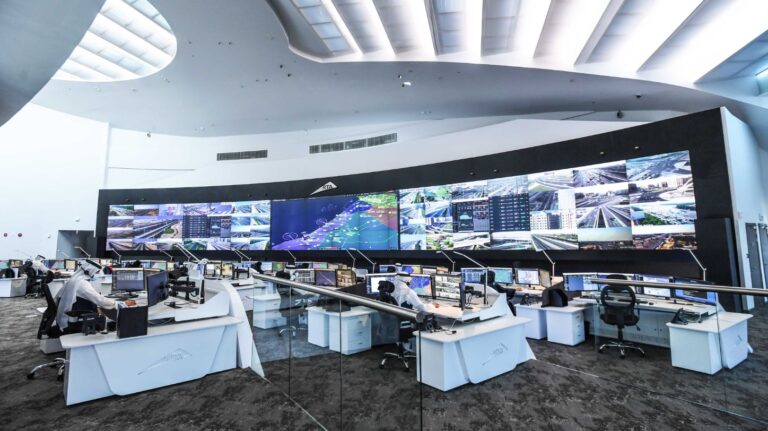Dubai’s Roads and Transport Authority (RTA) has launched its Artificial Intelligence Strategy 2030, outlining 81 projects and initiatives designed to accelerate AI-driven mobility and traffic management across the emirate.
Announced during Dubai Al Week 2025, the strategy aligns with the UAE Artificial Intelligence Strategy 2031 and RTA’s Digital Strategy 2030.
It focuses on six strategic pillars: people happiness, seamless and innovative mobility, intelligent traffic management, cognitive licensing, future-proof organisation and asset excellence.
According to Mattar Al Tayer, director general and chairman of the board of executive directors at Dubai’s RTA, the strategy will enhance human capital in AI, foster a connected ecosystem, and establish robust corporate governance frameworks for data and AI technologies.
Al Tayer SAID: “In today’s digital economy, big data and AI are foundational enablers of digital transformation. They are crucial for enhancing operational efficiency, enabling data-driven decision-making and driving innovation across all sectors.”
Outcomes include a projected 20% to 30% reduction in travel times through optimised traffic signal operations and intelligent pedestrian mobility solutions.
The strategy also targets a 25% to 40% productivity increase by equipping staff with AI tools, alongside a 10% to 20% cost reduction through AI-powered asset management, predictive maintenance and driver assessment platforms.
In the heart of #Dubai, #RTA has launched its Artificial Intelligence Strategy, redefining what drives the city.
We’re leading a transformation toward smarter, smoother, and more efficient mobility in Dubai, where AI works quietly behind the scenes to serve millions. @DubaiFuture pic.twitter.com/g9Opk21i8M— RTA (@rta_dubai) April 23, 2025
As part of the strategy’s implementation, RTA has signed a contract with South Korean AI optimisation company Nota to deploy a generative AI-based intelligent transport system solution.
The system, built on Nota’s proprietary video surveillance platform, Nota Vision Agent, uses a vision-language model to enable real-time video data analysis for rapid detection of road incidents.
Operating across both centralised and edge NVIDIA devices, the solution offers high-speed data processing, operational efficiency and enhanced security with minimal reliance on cloud servers.
Nota’s collaboration with RTA follows a successful proof-of-concept project conducted in partnership with UAE-based infrastructure firm ATS, which demonstrated improvements in traffic management.
Nota CEO Myungsoo Chae said: “This contract with the Dubai RTA is a significant milestone that validates Nota’s global technological competitiveness.
FREE: Subscribe to the monthly Road User Charging Conference Newsletter!
“With this momentum, we aim to complete our IPO this year and lead AI-driven innovation in smart cities and other industries worldwide, including in the Middle East.”
RTA’s AI journey began in 2017 with the launch of its Big Data Platform, now integrating with 49 corporate systems and handling more than 670 terabytes of data.
The platform supports over 280 data points and has enabled more than 40 AI use cases, including predictive bus maintenance, passenger sentiment analysis, parking occupancy forecasting and generative AI integration within its enterprise chatbot, Mahboub.
The authority will continue to explore an additional 45 AI applications, including optimising water and electricity usage on the Dubai Metro and enhancing the public bus network.
Discover the key trends and challenges shaping the future of transportation and mobility at Akabo Media’s global Road User Charging Conference series. Join senior decision-makers from around the world as they tackle the issues defining the industry in Abu Dhabi (May 2025), Miami (September 2025), Singapore (October 2025) and Brussels (March 2026). Gain invaluable insights, share innovative ideas and network with global leaders driving the transformation of transportation systems. Click here to learn more and secure your place!





